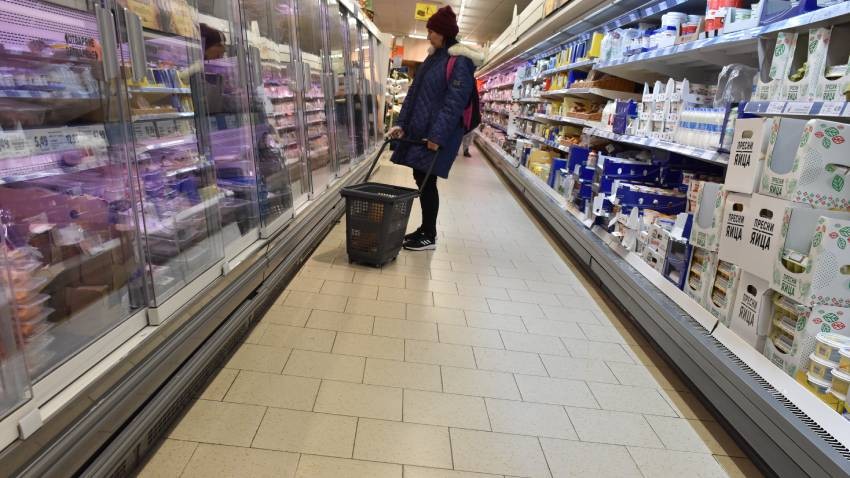2024 has begun with many changes in the incomes of Bulgarian citizens. The minimum wage is now EUR 477.04, an increase of 19.6% or EUR 78.23 compared to last year. The minimum hourly wage is 2.85 EUR. The minimum selected monthly social security income for self-employed persons has been increased and is now equal to the minimum wage, while the maximum has been increased from 1,738.39 EUR to 1,917.34 EUR. The poverty threshold is now EUR 268.94, a 4.4% increase compared to 2023. The maximum daily cash benefit for unemployment will be raised from EUR 43.82 to EUR 54.78. The minimum daily allowance will remain unchanged at EUR 9.2. Raising the minimum wage brings certain risks related to job cuts in poorer regions of the country, analysts said.

Certainly, when entrepreneurs face price pressure, whether it is from higher electricity prices, as it was last year, or as it is now - from rising labour costs, it adds pressure in a tough environment and European economy, for which a large part of our business works, especially in industry," - explained in an interview for BNR-Vidin economist Petar Ganev.
According to him, inflation, which is currently around 5-6%, will continue to fall, but will not disappear completely.
"We are entering another year of challenges in global geopolitics and domestic politics, and I do not expect 2024 to be a year of calm, growth and stability as we had in the years before the Covid-19 pandemic. However, from a domestic and state budget perspective, things look better than in the last two years, when we did not have a budget to begin with".

Economist Stoyan Panchev disagrees. "Income is catching up with inflation, because if your income hasn't grown by 30% since 2021, the real value of your money has fallen and you are impoverished without your nominal wage having fallen."
According to Eurostat data published on the cusp of 2024, Bulgarians now reach 62% of the purchasing power of Europeans. But Panchev says that this could be due to high inflation in the EU and the eurozone:
"My expectation is that this rate of rapid income growth will slow down, simply because price growth will also slow down. In many public sectors we have almost automatic wage updates. This means that for these workers the effect of inflation is weaker, although there have been certain groups in the public sector that have protested - employees of the National Statistical Institute, employees in the cultural sector - who have not received this kind of indexation and therefore their incomes have lagged seriously behind," the economist recalls. - Statistically, the private sector has been ahead in terms of catching up with inflation over the last two years, but there are also certain sectors where there will be difficulties".

Citizens also commented on the impact of inflation on their incomes. Among them was Dimitar Iliev, owner of a clothes shop in Vidin:
"Things in the system are calculated so that they remain more or less the same. The minimum wage is being raised, but so are social security contributions. There is a silent, hidden inflation that cancels out the increases, and I believe that overall there will be no significant difference," Iliev explains. If we compare ourselves with the richest countries, we do badly. If we compare ourselves with poor countries in Africa and Asia, we are doing well. Compared to our neighbours, our level is more or less the same".
It is difficult for citizens to predict how their purchasing power will develop this year, a survey of Vidin residents shows. Some are optimistic and see a slight stagnation in price growth, while others expect a new surge in inflation that will "devour " wage growth.
Text Ioan Kolev (Based on interviews conducted by BNR-Vidin)
Photos: BGNES
Translated and posted by Elizabeth Radkova
The draft state budget was adopted in first reading by the National Assembly on November 21. However, the planned changes in the financial framework for 2026 triggered an open clash between the ruling coalition, led by GERB party, and the opposition..
KBC Group expects the Bulgarian economy to grow slightly more next year in comparison to its previous forecasts, according to the conclusions of the Belgian financial group's latest assessments of the economies of Central and Eastern..
Foreign direct investment (FDI) in Bulgaria posted the largest net inflows from the Netherlands, Italy and Greece in the first half of 2025, the Bulgarian National Bank (BNB) said. Net FDI inflows totalled €554.9 million from the Netherlands, €325.2..

+359 2 9336 661
